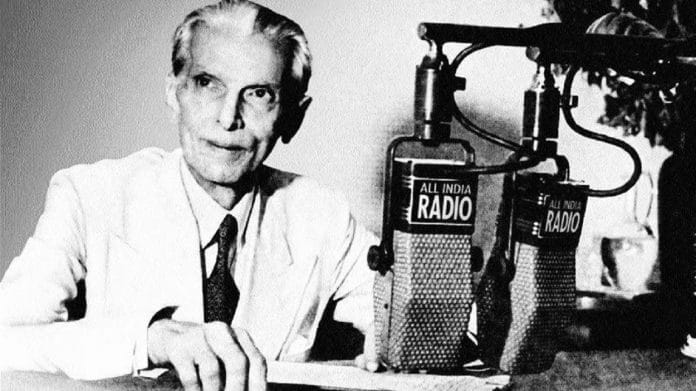If you are from a religious minority in Pakistan, you still can’t drive till you’re 18 but you can very well become a victim of blasphemy even at eight.
Late July this year, an eight-year-old Hindu boy accidentally entered a madrassa in Bhong, in Punjab’s Rahim Yar Khan district. On being reprimanded by the cleric, Hafiz Muhammad Ibrahim, for loitering in the madrassa, the boy allegedly urinated on the carpet out of fear. Ibrahim lodged a police complaint claiming that the Hindu boy intentionally peed in the madrassa and desecrated religious books.
The eight-year-old was booked under 295-A of the Pakistan Penal Code, which carries imprisonment up to 10 years for “deliberate and malicious intention of outraging the religious feelings of any class by words, or by visible representations.” This made him the youngest victim in Pakistan’s turbulent history of the blasphemy law. After a local court granted him bail, an online anti-Hindu campaign led by cleric Razzaq Soomro continued unchecked. This eventually resulted in a mob of more than a hundred people attacking the Ganesh temple in Bhong. They vandalised the temple and desecrated the deities. Shops of the Hindu community were shut down, while several families fled the area fearing backlash from blasphemy violence. This is the eighth attack on a temple attack in the last 12 months. While people falsely accused of blasphemy suffer endlessly, the blasphemy of attacking a temple can even see perpetrators walk scot-free. Like in the case of vandalisation of a historical temple in Karak, where the cleric apologised and was pardoned.
Fearful of their fates, the Hindu boy and his family remain in hiding. The mere rumour or false allegation of blasphemy alters lives forever. Added to constant persecution that the Hindu community faces with minor girls being forced into conversions and marriages.
Also read: Pakistan SC pulls up authorities for failing to stop attack on Hindu temple in Punjab province
No will to change
Children being charged with blasphemy in Pakistan is not new. In 2016, nine-year-old Izhan, a Christian boy, and his mother were accused of burning the Quran in Quetta. They were later released after interrogation when political and rights groups intervened. Faryal Bhatti, 13, was accused of blasphemy after she made an Urdu spelling mistake in an Islamiat class in 2011. Another 12-year-old girl with down syndrome, Rimsha Masih, was wrongfully accused of desecrating the Quran by a local imam. In 2018, Nabeel Masih, 16, was booked for blasphemy for sharing a picture of Kabba on Facebook. And as early as 1993, Salamat Masih, 11, was charged for blasphemy for scribbling sacrilegious text on the wall of a mosque along with his father and uncle.
Despite the worldwide criticism Pakistan’s blasphemy laws draw, the State remains unmoved. There is no will to even make procedural changes. A 2017 high court judgment asking for legislation to punish those who make false accusations went nowhere as the Pakistan Tehreek-e-Insaf (PTI) withdrew the bill from Senate in 2018. To this day, no one who has falsely accused a citizen of blasphemy has been punished, even if victims have spent 20 years imprisoned for a crime they didn’t commit.
So, when the European Union Parliament highlights the injustice and discrimination of Pakistan’s blasphemy laws and calls for taking away the GST+ status, ministers line up to call it a grand conspiracy against the country. The world is told that there is no problem at all with the minorities in Pakistan.
Also read: How to become an instant hero in Pakistani social media — shoot someone to save Islam
Jinnah’s speech forgotten
August is always packed with commemorative days. There is a day when Pakistan celebrates independence, 14 August, then there is the day that Pakistan doesn’t want to celebrate as its independence day, 15 August. Despite the speeches and statements of founding father Mohammad Ali Jinnah marking Pakistan’s birthday on 15 August in 1947, independence day was moved to 14 August in 1948.
There is another day commemorated with a part of Jinnah’s 1947 speech to the Constituent Assembly of Pakistan on 11 August: “You are free; you are free to go to your temples, you are free to go to your mosques or to any other place or worship in this State of Pakistan. You may belong to any religion or caste or creed — that has nothing to do with the business of the State.” The speech was blacked out, deliberately destroyed, and underplayed in the national discourse. Like, how’d we say it today, Jinnah’s speech went missing. And with it the idea of religion not being business of the State.
Pakistan, since 2009, observes 11 August as National Minorities Day. A day for more speeches, some gratitude for the religious minorities and a day to post the 52-word text of “you are free to go to your temples…”. There will always be talk about finding Jinnah’s Pakistan, but no government is interested in actually carving a social contract with its minority citizens that doesn’t entail persecutory laws and policies.
The author is a freelance journalist from Pakistan. Her Twitter handle is @nailainayat. Views are personal.






